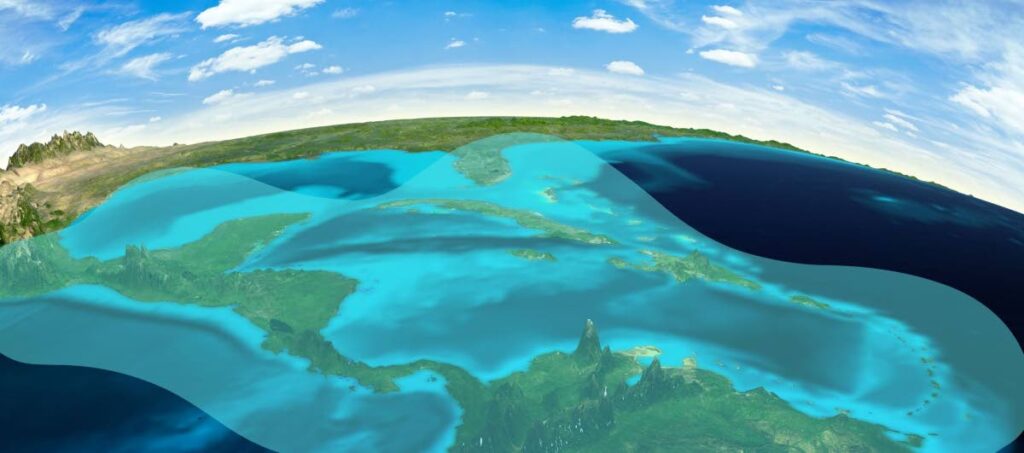Barbadian telecom gets green light to provide services in Trinidad and Tobago

Neptune Communications, a telecommunications provider based in Barbados with operations in Jamaica has been granted a licence to operate in TT by the Telecommunications Authority.
Julian Jordan, Neptune's CEO explained that the company has two very specific business thrusts.
"One is the satellite broadband ISP business that provides high speed internet access to businesses and government users in the region," Jordan explained in a virtual interview on Monday.
"We don't focus on consumers; this is not a mass market play. It's a specialised set of services that we provide to a very targeted set of customers," he said. "We also have another business that helps governments get access to secure, reliable and secure communication services for public safety and national security agencies."
The idea for the company began with the 9/11 attacks, when Jordan realised that the world and the nature of security had fundamentally changed.
The business model began to take shape in 2009, with the increase in transmission capacity from low earth orbit satellites dedicated to telecommunications transmission.
Neptune formally launched in 2019, only to be slowed by the covid19 pandemic.
The company has successfully established a presence in Jamaica, is headquartered in Barbados and is planning the expansion of its services to this country.
According to Jordan, Neptune will then "hunker down" to properly service these three markets as anchor points in delivering its upmarket services in the Caribbean.
"We're talking to businesses that are focused on information-driven business," he said.
"Businesses that rely on the internet, who really, really need the internet every day for business and government. That forces the discussion immediately to reliable connectivity and redundancy."
"If you tell me that you're not interested in redundancy, then that must mean you're not really focused on cloud service. Or you have cloud services, and you really don't understand (them)."
"We're talking to customers about how to manage on-premise systems versus public clouds and what their cloud services are telling them about their connectivity and redundancy. This leads to the questions about how to get diverse paths on their backbone transport legs."
"We're focusing on the big businesses and regional groups that require this kind of redundancy. We're not going to cherry pick, but we have to start where we know the ground will be most fertile."
Neptune's packages are not state of the art in terms of speed. Download speeds are between ten and 45 Mbps and upload speeds range between two and five Mbps.
The company will also face competition from Starlink, which was granted a concession from TATT in May. Starlink has announced pricing for consumer and business packages
Neptune does not reveal prices on its website, preferring to configure each project to customer needs, but Jordan acknowledged that pricing ranges for monthly payments (in USD) ranges between hundreds to tens of thousands depending on the services contracted.

(Photo courtesy Neptune Communications) -
The key selling point of the service is its security profile and its "always on" promise, which in turn depends on its satellite service providers, Eutelsat and OneWeb.
The profile of coverage for the Caribbean ranges from Florida in the north, to Central and part of South America on the west and south and the entire Caribbean archipelago to the east.
Eutelsat has partnered with Neptune to deliver its network-as-a service ADVANCE virtual network operations product to the Caribbean.
Low earth orbit satellites are found between 500 and 2,000 km above the surface of the earth and there are currently more than 3,000 of them above the planet delivering telecommunications alone, with more being added by Amazon and Space X each month.
This zone of space is the region that's most densely cluttered with man-made objects, much of it abandoned.
In this competitive environment, Neptune is targeting forward-looking businesses and governments keen to reinforce the continuity of increasingly digital business.
"The importance of this is mushrooming," Jordan said.
"It's a very exciting time for Neptune, and we are always on the lookout for great corporate partners who want to be a part of this journey, businesses who might have looked at the industry and thought, I wish I could do this or could do that, because we're going to change the way that many companies operate in this business."
Another aspect of Neptune's business is communications continuity for businesses and enterprise in disaster situations.
The company faces a regional problem of institutional inertia for this business proposition, because preparing for a natural disaster isn't a front-burner project when there hasn't been one recently.
Jordan notes that conversations in Dominica, which is still struggling to recover from the devastation of Hurricane Maria, are quite different from those that he has in other parts of the Caribbean.
"A lot of what we have been doing for years is advocating and explaining what's happening and how it's relevant to the Caribbean," he said.
"Let's pretend that you are someone with responsibility for the security information security of a country or a minister of government or the leader of a big enterprise. Are you satisfied that in today's world you could rest the responsibility (for digital connectivity) comfortably on the shoulders of Digicel or TSTT, or Flow? Depending on your experience and your understanding, you'll come to one conclusion."
Neptune was formed to bring those people a better understanding of what's happening on the outside in the wider world, and how people are making decisions. We use the term trusted advisor a lot.
"We're not interested in doing business with you if you don't fully understand what it is that we're offering to do for you and are ready to pay for it," he said.
Mark Lyndersay is the editor of technewstt.com

Comments
"Barbadian telecom gets green light to provide services in Trinidad and Tobago"